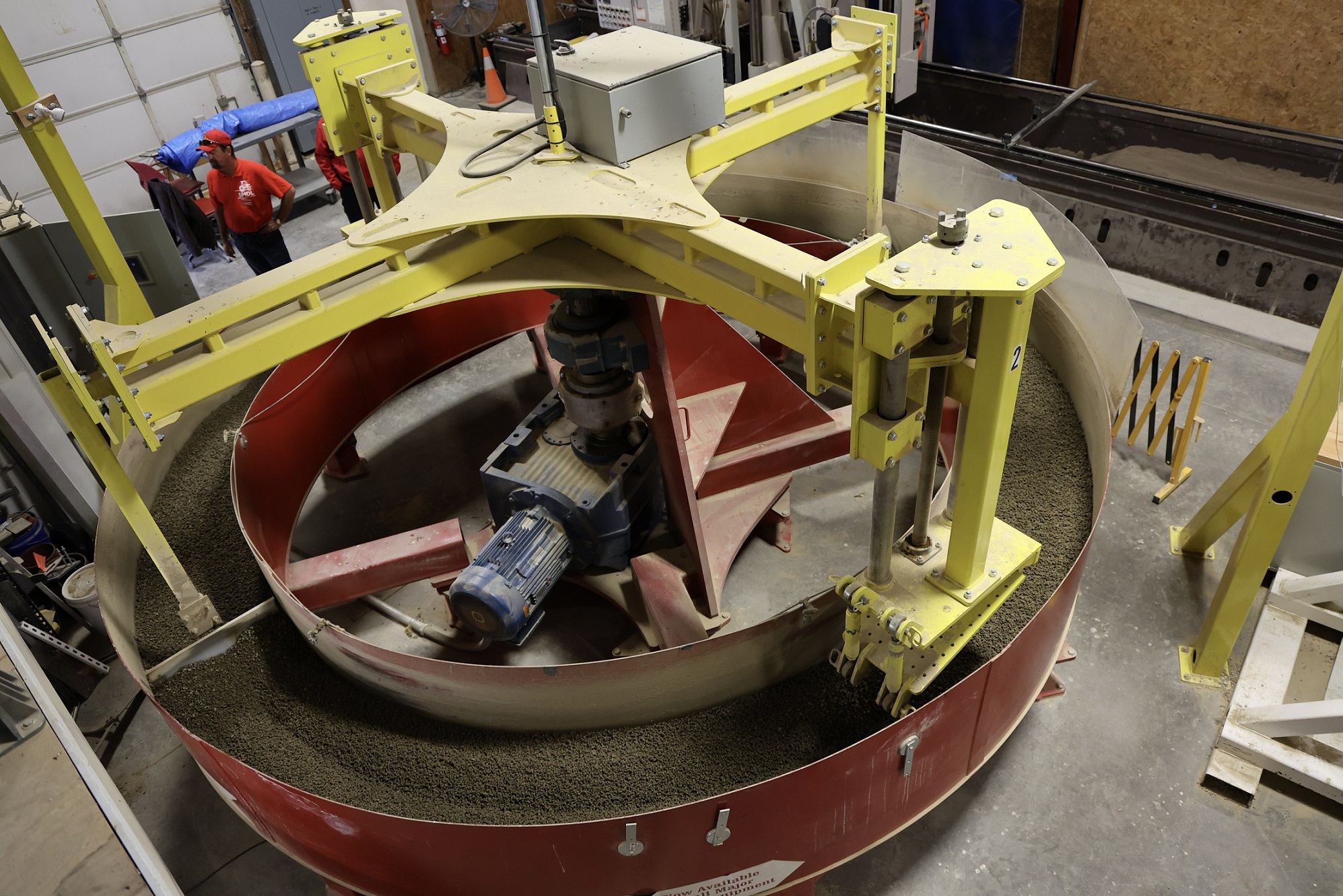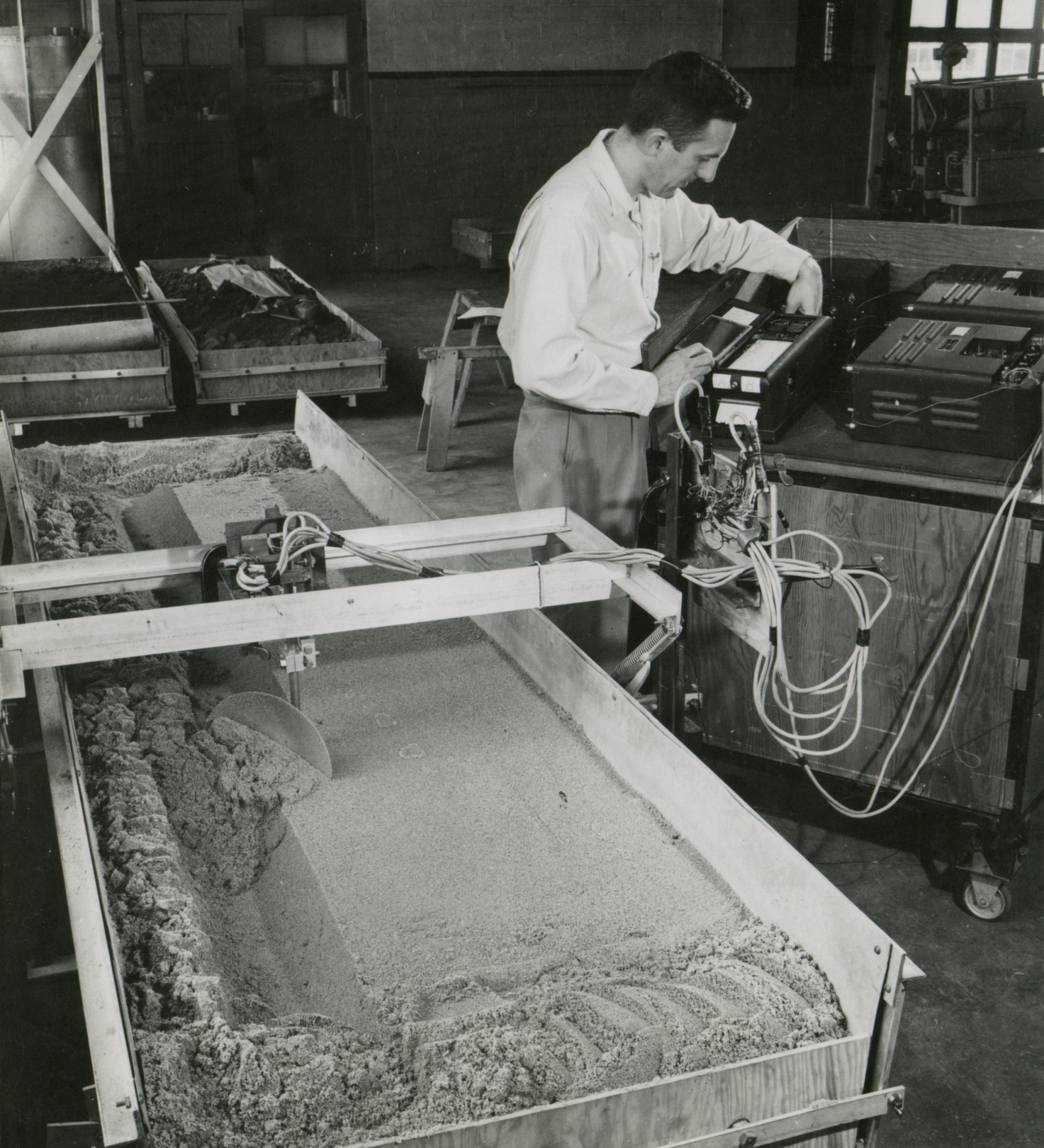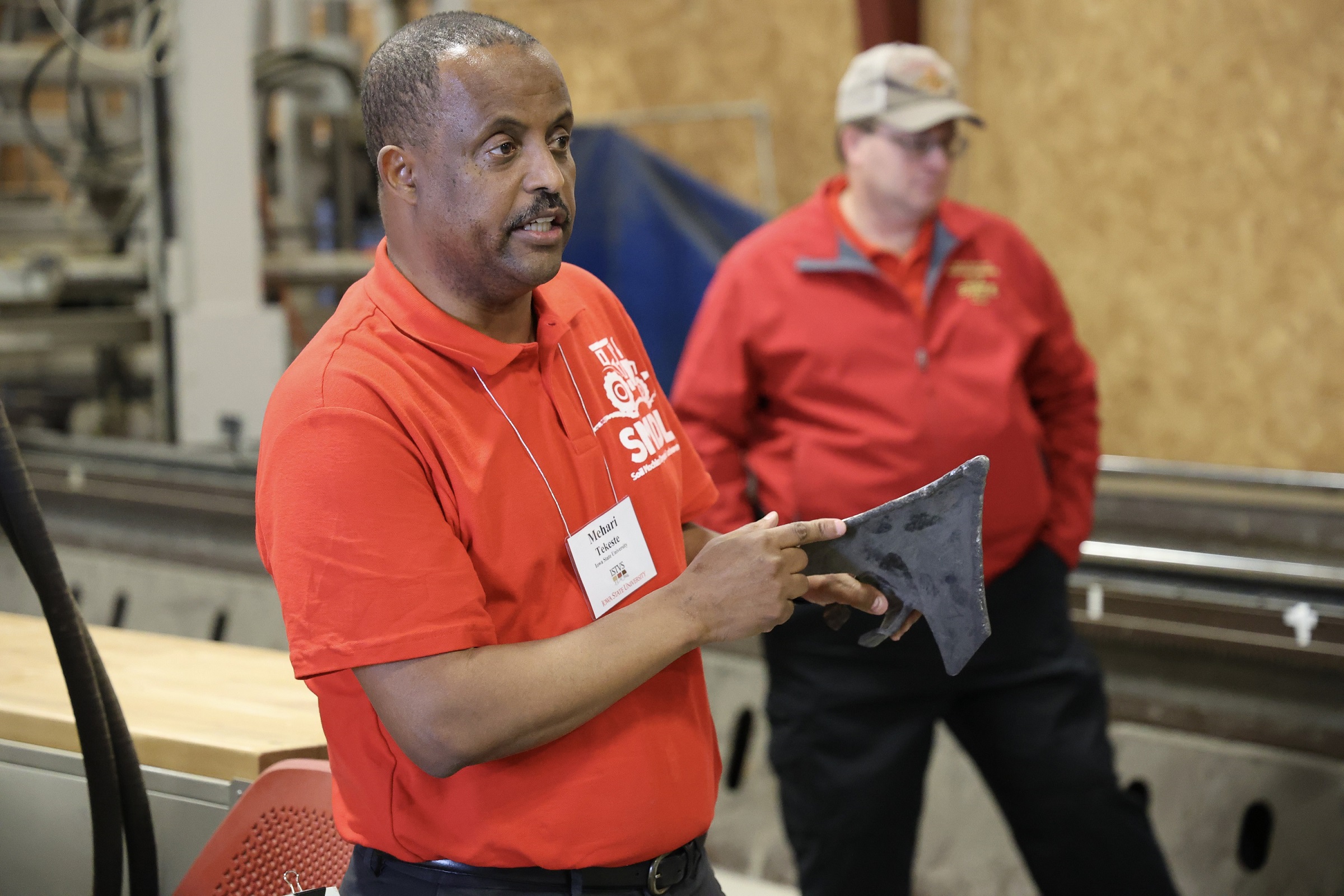AMES, Iowa – From the surface of the moon to the fields of Iowa, the Soil Machine Dynamics Laboratory at Iowa State University applies innovative science to solve problems.
Laboratory Director Mehari Tekeste, associate professor of agricultural and biosystems engineering, works closely with students, industry and government agencies to better understand interactions between machinery and soil resources. Any given day, that can include wear-testing equipment design and research for space excavation missions or researching levels of soil compaction to expect from agricultural tires.
Harvesting water from the moon
If the U.S. National Aeronautics and Space Administration finalizes plans to harvest water from the moon, they will likely rely on approaches for calculations of ground engaging tools research from the SMDL. The recent NASA-funded study predicted wear rates for a chisel to harvest water trapped in icy regoliths (layers of unconsolidated rocky material covering bedrock). The project was led by Zamir Syed, with the California company Singularity Solutions, one of Tekeste’s first graduate students, in collaboration with Tekeste and Paul Schafbuch, professor of mechanical engineering at Iowa State.
A bin of unique soil that Tekeste’s team developed helped simulate characteristics of the moon’s surface conditions. Their modeling challenges included that the chisel tool needed to work in a vacuum and under extreme temperature fluctuations. Data from the tests helped validate modeling to predict how the tool would wear, how long it could be expected to operate and how many of the tools would be needed. Their results were highlighted in a recent issue of Earth and Space on Engineering for Extreme Environments.
“That was a fascinating project,” Tekeste said. “It was also exciting to work on solving a big challenge like this with a former student, whose company landed the grant.”
Currently, Tekeste is part of a multi-institutional group reviewing specs of mobility studies on extreme deformable surfaces for a new autonomous vehicle that is part of NASA’s Artemis mission for Mars exploration.
Studying soil compaction in Iowa

Closer to home, projects have focused on precision tillage and soil compaction, two faces of soil-machine systems for Iowa agriculture. These include gauging the benefits of inflation and deflation flexible agricultural tires on soil compaction and crop yield and studying the impacts of soil compaction caused by pipeline-related construction equipment in Iowa fields. A recent SMDL study showed that farm cultivator sweep wear was significantly better for a new edge-hardened sweep, compared to the standard sweeps farmers have been using. The lab’s modeling also predicted using the optimized sweeps would result in yield improvements from precision seed-bed establishment. Tekeste now has three grants from different companies to perform similar farm equipment testing on soft soil conditions.
“Primarily, we serve as an independent testing center that provides scientific data to develop and validate predictive models for decision-making within the grower-machinery equipment manufacture chain,” Tekeste said.
“It was a bright new day when Dr. Tekeste arrived on campus in 2015 to revitalize the area of soil dynamics that was once a prominent area of research at Iowa State,” according to alumnus Robert Schafer, now retired from USDA ARS. His remarks came during a symposium Tekeste coordinated in May on terramechanics in agricultural soil-vehicle systems. Schafer credited Tekeste with carrying on a legacy of innovative agricultural engineering faculty who led work in the 1950s to improve machine design by better understanding soil-machine behavior.

“We now have three soil testing bins designed for different purposes. They are a reason people want our help at Iowa State,” Tekeste said. He has created his own artificial soil that provides a controlled environment to test machinery-soil interactions of tires and tracks. He has also developed other tools, like a special penetrometer for on-the-go measurement of soil compaction.
A 2025 project, conducted with doctoral student John Sheriff, agricultural and biosystems engineering, used the soil bins to investigate soil and crop yield impacts from self-propelled sprayer tires equipped with Very High Flexion (VF) agricultural radial tires, that carry 40% more load at the same inflation pressure than standard radial tires. Their key findings were reported in Applied Engineering in Agriculture:
- Reduced tire inflation pressures for the VF tires created shallower rut depths and bigger contact area, signaling reduced potential for long-term soil compaction.
- Reduced tire inflation also maximized yield potential, as compared to the conventional higher operating tire inflation pressures on self-propelled standard radial tire inflation pressure settings.
In addition to NASA, support for the lab’s diverse projects has come from private companies, including John Deere, Caterpillar, Vermeer, agricultural tire manufacturers (Micheline, Titan, Firestone, Alliance, CFI), tillage equipment manufacturers (USM Wear Technologies, Yetter, Orthmann, Unverferth, Bourgault Tillage Tools) and from the Iowa State Association of Counties, the USDA Agricultural Research Service and USDA Hatch research funds.
“Farmers in Iowa and beyond can greatly benefit from the SMDL’s research,” said Kapil Arora, field agricultural engineer with Iowa State University Extension and Outreach. “That is especially true related to the work studying soil compaction from heavy equipment and ways to avoid it. Soil compaction can significantly impact crop yields, as it can push soil particles together, reducing soil infiltration capacities and increasing resistance to crop root penetration and development.”
Attend soil compaction school Nov. 14
For farmers or ag retailers interested in learning more, Arora and Tekeste will lead a soil compaction school Nov. 14, near Boone. Find more details and registration information on the Soil Compaction School website. Sponsors of the event include the Iowa Pork Producers Association, the Iowa Corn Growers Association, CNH Industrial and the Elder Corporation.
Contacts:
Mehari Tekeste, Department of Agricultural and Biosystems Engineering, 515-294-2464, mtekeste@iastate.edu
Kapil Arora, Iowa State University Extension and Outreach, 515-291-0174, pbtiger@iastate.edu
Ann Y. Robinson, College of Agriculture and Life Sciences Communications, 515-294-3066, ayr@iastate.edu
